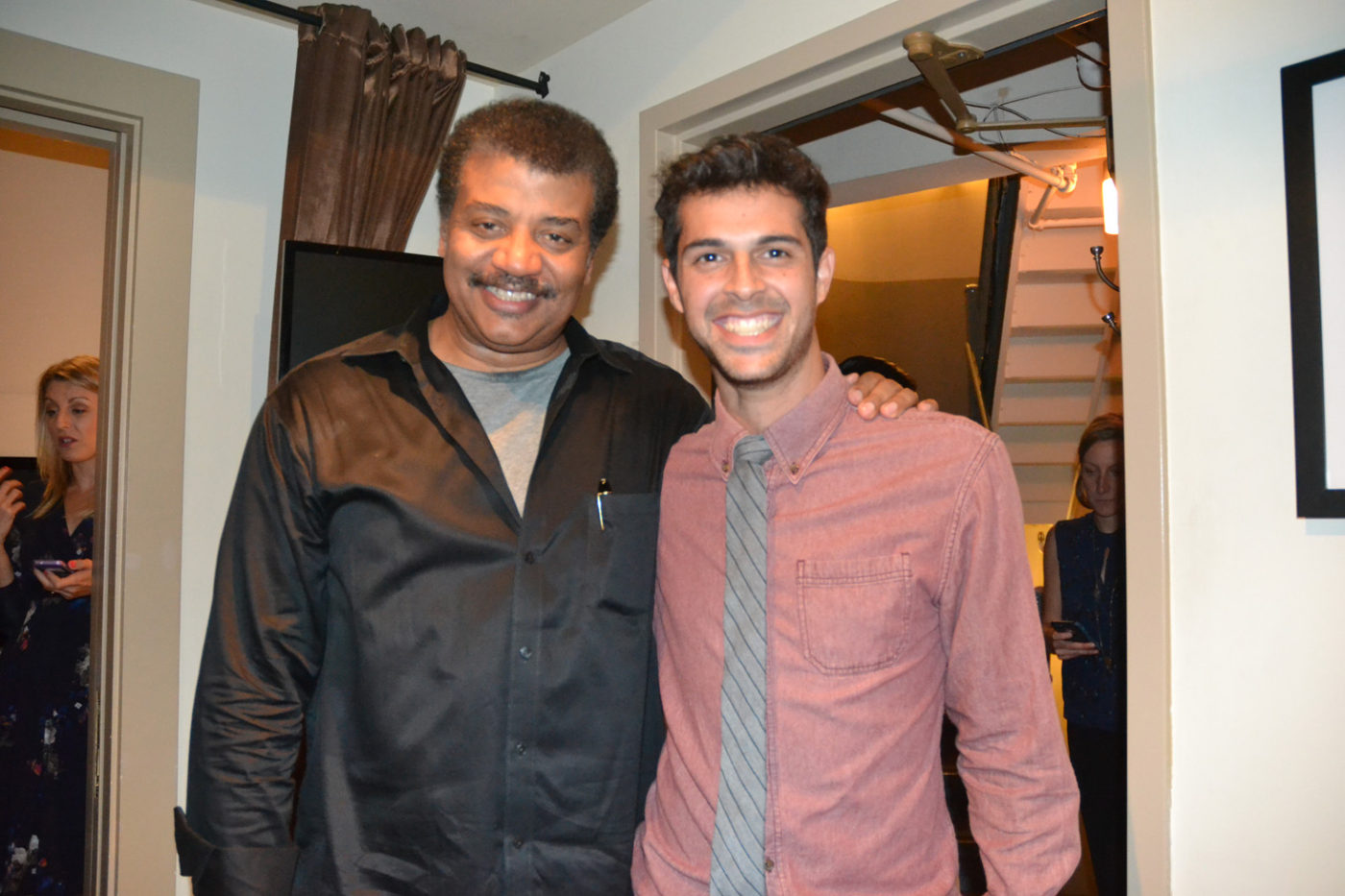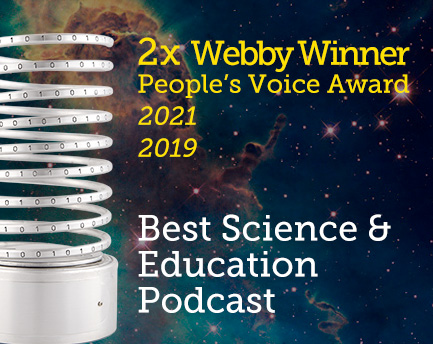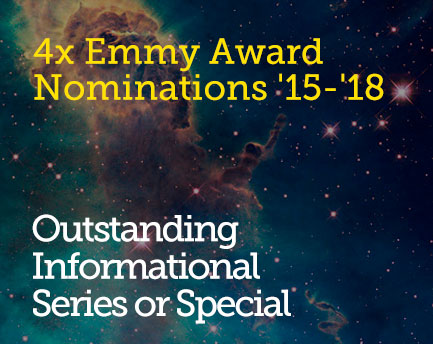September 28, 2016 8:00 pm
It’s Never Too Late To Become Scientifically Curious

Me trying to stay cool with the man himself. At StarTalk Live! at the Beacon Theatre. Photo Credit: Stacey Severn.
Today’s guest blog post is from StarTalk Volunteer Ian Mullen, who is a recent graduate from Franklin College with a degree in Journalism and Design. You can visit his website here.
Being scientifically curious is not something for the faint of heart. Eventually, while wandering and exploring paths of scientific discovery, you’ll find information that frightens you, shocks you, and tests you. However, with each wave forward into the ocean of unknown knowledge that you drift, the closer you get to fully knowing yourself.
I wasn’t prepared to take on such a challenge during my early schooling. Scientific material wasn’t presented in a way that I found interesting. Partially because material in the classroom today is geared towards standardized tests, which don’t allow teachers to be as creative as they can with the material that they love (a discussion for another day).
That being said, it’s never too late to become scientifically curious. I didn’t catch the science wave until college. The great thing about scientific knowledge is that most of the base laws and theories have been proven true for a long time. That doesn’t mean they still can’t put you in awe. That also doesn’t mean discovery is stale. Scientific discovery happens every day in small and large ways and if viewed through the eyes of someone who isn’t scientifically curious these discoveries are just another day of news stories.
Discovering my curiosity for science was like realizing for the first time that a movie I watching is my all-time favorite. A sense of comfort dawned over me, but also a sense of intrigue. I was comforted that I now knew which movie out of the plethora of choices was my favorite, but, I was also intrigued in what subtle plot points and lines of dialogue made it that way.
Scientific curiosity is the same. Once I realized my newfound love for science, I was comforted in the sense that I was now a part of a community. A community I felt disconnected with for years. I was also intrigued on how I became so connected, so quickly. The answer being that scientific curiosity works with an avalanche effect. Once you get going down the rabbit hole of science, you go.
I discovered a lecture given by Dr. Tyson, which ignited my passion for space, which pushed me towards StarTalk, which now allows me to work for a podcast that was never on my radar, but one I am in love with. That’s how scientific curiosity works. It sparks your passion to never stop learning and pushes you in new directions to discover things you never thought you’d love.
Some of your favorite people are also secretly science nerds. I now consider myself a science nerd and I was overjoyed when I found out Jon Stewart (formerly of the Daily Show) was a science nerd as well.
On his episode of StarTalk, An Alien’s Guide To Earth, he states it very clearly to Neil.
“Can I tell you something? I love the scientific method.”
What’s not to love? In a world wear facts and opinions are taken as the same thing, it’s refreshing to learn about things that are universally true.
It’s not hard to start being curious. Science affects anything and everything in your daily life. If you love movies, research the process of making film. If you love cars, explore the early ideas of internal combustion. If you love gardening, take a step back and realize that you are already apart of the scientific community!
Science is everywhere, don’t be afraid to look.
I end by saying what Neil has always said at the end of every episode…but with my own little twist.
Keep looking up, and keep looking within.
Ian Mullen
Get the most out of StarTalk!
Ad-Free Audio Downloads
Priority Cosmic Queries
Patreon Exclusive AMAs
Signed Books from Neil
Live Streams with Neil
Learn the Meaning of Life
...and much more

 Become a Patron
Become a Patron

